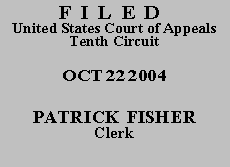

| NANCY A. VOGEL,
Plaintiff-Appellant, v. JO ANNE B. BARNHART, Commissioner, Social Security Administration, Defendant-Appellee. |
|
In 2001, Nancy A. Vogel applied for disability benefits, alleging that she was unable to work as a result of pins in her right ankle, a rod in her right knee, and a broken back. The Commissioner of the Social Security Administration found that Vogel suffers from impairments in her leg and her back but that she is not disabled because she retains sufficient residual functional capacity to perform certain jobs within the national economy. The district court(1) upheld this decision. Vogel appeals, contending that the Commissioner's decision was erroneous because (1) the administrative law judge (ALJ) failed to acknowledge her shoulder impairment and failed to include this impairment in his hypothetical question to the vocational expert and (2) the ALJ considered improper factors in evaluating her credibility.
"We review the district court's decision de novo," see Briggs ex rel. Briggs v. Massanari, 248 F.3d 1235, 1237 (10th Cir. 2001), and examine the underlying denial of benefits to determine "whether the factual findings are supported by substantial evidence in the record as a whole and whether the correct legal standards were applied," Howard v. Barnhart, 379 F.3d 945, 947 (10th Cir. 2004). Having reviewed the briefs, the record, and the applicable law pursuant to these standards, we conclude that the Commissioner did not err and that the district court properly upheld the denial of benefits. We therefore AFFIRM the challenged decision for the reasons stated by the district court in its Order of January 20, 2004.
Entered for the Court
Circuit Judge
*. This order and judgment is not binding precedent, except under the doctrines of law of the case, res judicata, and collateral estoppel. The court generally disfavors the citation of orders and judgments; nevertheless, an order and judgment may be cited under the terms and conditions of 10th Cir. R. 36.3.
1. The parties consented to proceed before a magistrate judge. See 28 U.S.C. § 636(c).